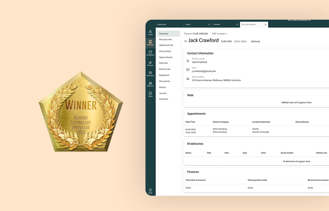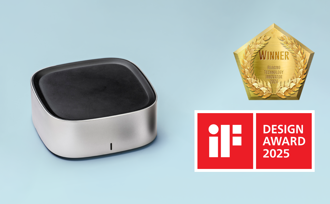
Audiology is a critically important profession, as an estimated 430 million people around the world live with disabling hearing loss.
Audiologists are trained to identify and treat hearing loss and other issues, like tinnitus, balance problems, etc., helping people with these disorders better communicate and connect with the world around them.
In the U.S. alone, the number of audiologists has grown at a rate of 4.66%, from 17,015 people in 2019 to 17,808 people in 2020. The growth of the audiology industry can be attributed to multiple factors, such as an increasing senior population and government initiatives providing easier access to hearing aids.
To be a truly exceptional audiologist, you must have more than a proper degree and the ability to diagnose hearing loss. You also need specific “soft skills,” or proficiencies related to communication, personality traits, and behaviors. While someone can learn how to conduct a hearing examination, soft skills – which are how a person relates to and works with others – are more innate.
6 Qualities That The Best Audiologists Have:
Compassion
It’s essential to treat people with kindness. Your customers should like you and believe that you truly care about them.
Strong Communication Skills
By explaining to your customers what you’re doing during the examination, you’ll make them feel more comfortable and relaxed.
Problem-Solving Skills
If your initial recommendation isn’t working well for the customer, use your problem-solving skills once again to propose another option.
Time Management
Stay on track during your appointments and be mindful not to keep your other customers waiting.
Organization Skills
It’s essential to stay organized, maintaining proper customer files, adhering to proper workflows, and sticking to your schedule.
1. Compassion
In any healthcare role – audiology included – it’s essential to treat people with kindness. In addition to testing and diagnosing, audiologists counsel customers about their treatment options and recommend the next steps. The best audiologists need to treat each client as an individual and be sympathetic to their specific issues, worries, budget, etc. It’s not enough to “just” be skilled at the diagnostics part of the job. It’s also critical to be friendly, empathetic, personable, and compassionate. Your customers should like you and believe that you truly care about them. If you’re “all business” and not likeable and compassionate, you could make your customers feel uncomfortable. If you alienate them, they won’t return.
2. Strong Communication Skills
Being a good communicator is another critical trait that audiologists should have. By explaining to your customers what you’re doing during the examination, you’ll make them feel more comfortable and relaxed. Once you establish a diagnosis, you must explain it to them in easy-to-understand terms – not in complex industry jargon. If you find they have a hearing loss, for instance, they might feel anxious about the diagnosis and overwhelmed by the array of hearing aid options that are available.
Explain which options would be the best – and why you’re recommending them – in a way they can clearly understand. Once they select a hearing aid, discuss the care and maintenance, including cleaning and storing the device, taking care not to overwhelm them with instructions. Answer all their questions throughout the process. Develop a relationship where they feel like they can understand and trust you.
3. Problem-Solving Skills
Problem-solving is a huge component of every appointment. Customers come in with hearing loss or other issues, and audiologists must use critical thinking skills to assess each situation, determine the issue, and find an appropriate solution. Even with more challenging cases, be willing to conduct various tests to pinpoint the problem. And if the issue requires a specialist or another medical professional, determine where to refer the customer – and explain why this next step is necessary. In addition, if you’ve recommended a solution – such as a specific type of hearing aid – and your initial recommendation isn’t working well for the customer, use your problem-solving skills once again to propose another option.
4. Time Management
Audiology is a business, and audiologists likely have goals to meet, including the number of customers they see per day and the number of hearing aids they sell per month or quarter. It’s important to have strong time management skills to stay on track and meet these goals. You could be the most talented, compassionate, amazing audiologist in the world, but if you can’t manage your schedule – resulting in long, tedious waits for your customers – it’s a real problem. Faced with consistently long waits for appointments with you, customers will likely opt to go somewhere else where the audiologist respects their time. Stay on track during your appointments and be mindful not to keep your other customers waiting.
5. Organization Skills
It’s essential to stay organized, maintaining proper customer files, adhering to proper workflows, and sticking to your schedule.
A good Practice Management Software (PMS), like Auditdata Manage, can support your efforts with integrated customer records, clinical management, scheduling, marketing, reporting, and other valuable features. Reports and templates help clinicians organize every appointment and find exactly what they need, quickly and easily.
Furthermore, Manage allows your office to go paperless, cutting down on clutter and keeping important information right at your fingertips. Additionally, many top-rated audiologists rely on highlighted audiometric nudging to ensure they stay on track, follow best practice testing protocols, and don’t forget any steps in the testing process. The Measure software within the Measure portfolio provides customizable workflows and highlighted nudging to help audiologists deliver efficient, accurate diagnoses, stay organized, and provide consistently excellent care.
6. Patience
Many clients require special attention. Perhaps they’re feeling anxious (or relieved) about the hearing exam and/or diagnosis and need lots of reassurance. Maybe they have a lot of questions about their diagnosis and treatment options. Or they’re confused by the various hearing aid choices and need you to repeat the information about each option. Audiologists must be patient with their customers and give them the time and reassurance they need. While it’s important to be mindful of your schedule, you also can’t speed through the hearing exam and make your customers feel rushed. Customers want an audiologist who is kind and thoughtful, recommending the best solutions based on their circumstances.
Let's Talk
Audiologists can be clinically proficient, but to truly excel in this field, they need to have a combination of clinical proficiency and essential soft skills. Which skills do you think the best audiologists possess?
Auditdata helps hearing care providers improve clinical care and drive their business performance and growth. Our data-driven, connected solutions help customers in all stages of the hearing care lifecycle. For more information about Auditdata’s integrated, intuitive, user-friendly tech solutions for audiology shops, please get in touch with us.

Other Blogs You Might Enjoy:
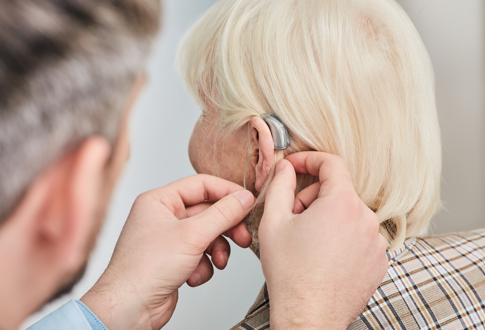
Helping Patients Understand the Hearing Aid Fitting Process
Helping customers understand the hearing aid fitting process: personalized approaches, device selection, customization, and adapting to new hearing aids.
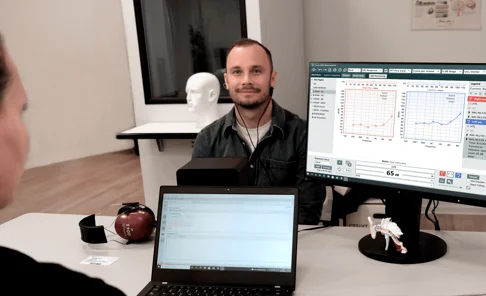
Are Real Ear Measurements Necessary?
Real Ear Measurements (REM) – also called Probe Microphone Measurements (PMM) – are considered the gold standard in hearing aid fitting and verification, allowing audiologists to determine whether a hearing aid user is receiving the precise level of amplification needed at every frequency to maximize their hearing. This blog explains how REM can improve customers’ hearing, as well as drive better business outcomes and serve as a key differentiator for hearing clinics.
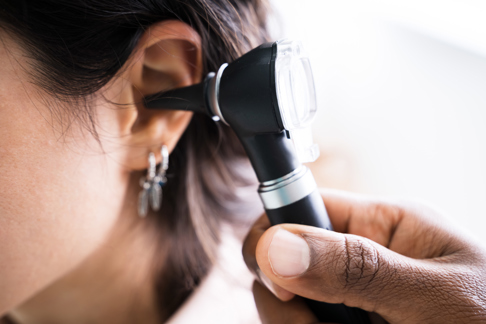
The Future of Audiology: 2024 and Beyond
The field of audiology stands at the crossroads of policy, technology, and healthcare, poised for transformative advancements like AI-technologies, tele-audiology, and over-the-counter (OTC) hearing aids.
Don't Miss Out On the Latest Insights On Audiology
Sign up today to receive exciting updates, tips, and the latest newsletters from Auditdata.
Resources
⭐️ Auditdata Manage: Practice Management Software
⭐️ Auditdata Measure - audiological equipment
⭐️ Real-time audiometric quality assessment and nudging
⭐️ 7 Reasons Why Your Hearing Clinic Should Go Paperless
⭐️ Consultant to support the dissemination of the World Report on Hearing
⭐️ Audiologists
⭐️ 4 Things Big Box Stores Don’t Want You To Know About Your Local Audiologist
